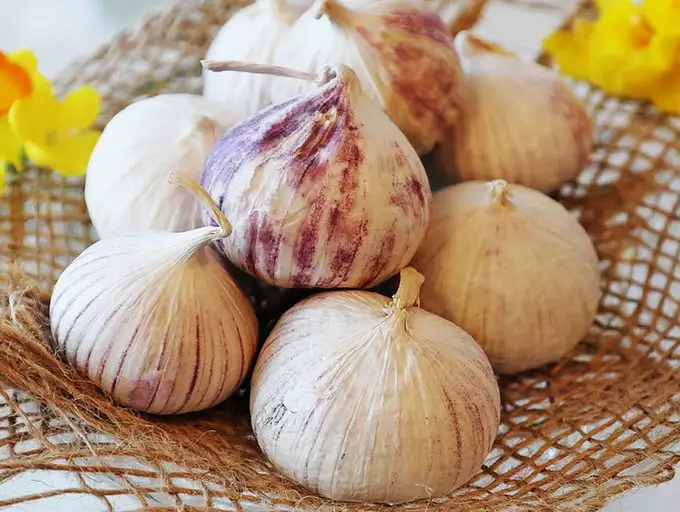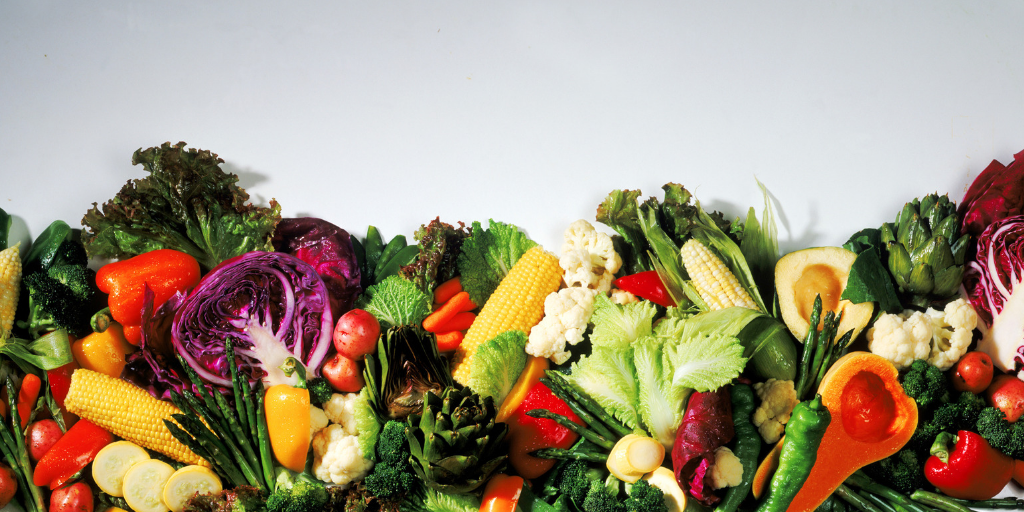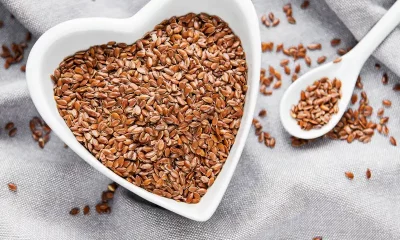Food
5 benefits of garlic tea and side effects

Food
6 Benefits of sweet orange essential oil

Table of Contents
Food
Side effects of lemon water

Table of Contents
- Main side effects of lemon water
- 1. Causes tooth damage
- 2. It can cause cavities
- 3. It can cause stomach infections
- 4. Aggravates ulcers
- 5. Irritation of thrush
- 6. It makes migraines worse
- What recommendations should be followed?Discover the side effects of lemon water.
Lemon juice is known for its different benefits, but taking it in excess can cause problems to our health
Lemon juice is known for its various benefits, especially in regulating the pH of the body, controlling body weight, moisturize the body and contribute to digestion, however, as in all foods too much can backfire and it can put our health at risk.
Main side effects of lemon water
It is recommended to drink lemon water every day, to take advantage of its properties, but the abuse of this food can generate different side effects, among which we can mention the following.
1. Causes tooth damage
Excessive contact between the teeth and the lemon juice can wear down their enamel since the acid can gradually degrade its surface.
2. It can cause cavities
In addition to the damage it produces to tooth enamel, it also increases the risk of cavities, because oral bacteria tend to feed on the sugars present in food, especially fruits.
3. It can cause stomach infections
An investigation published in the Journal of Environmental Health revealed that 70% of lemons that are not washed contain microorganisms, such as E. Coli, which can cause diarrhea and vomiting.
4. Aggravates ulcers
Another of the effects generated by the acidity of lemon juice is an aggravation of stomach ulcers, as well as it can also generate reflux.
5. Irritation of thrush
Lemon does not cause canker sores, however, the American Dental Association assures that lemon juice can irritate these types of lesions and make them difficult to heal.
6. It makes migraines worse
People who suffer from migraines should not consume lemon juice or any other citrus fruit, as an investigation carried out by the University of Porto Alegre revealed that citrus fruits may be related to the appearance or worsening of these episodes.
What recommendations should be followed?
Whether for the consumption of lemon or to be able to ingest any other food, it is always necessary to have the opinion of the experts, so it is advisable to consult with a doctor to find out if there is any type of contraindication and then go to a nutritionist to find out when and how to consume both the lemon and its juice.
Another way in which lemon juice can be integrated is by including it in different recipes where you do not have to drink the juice and you can also take advantage of its properties.
Lemon juice can be an ingredient for both sweet and savory recipes, an example is to prepare the juice by mixing it with other types of fruits or to prepare desserts, as well as it can be the perfect company for some meats such as pork or fish, while on the other hand, you can prepare a large number of sauces.
In any case, it does not mean that you should not consume lemon juice, only that you should be careful in terms of quantities, remember that the benefits of water with lemon are more than proven and for this reason, it is important that it is part of our diet.
Food
9 Interesting Benefits Of Eating Vegetable

Table of Contents
- Health Benefits of eating vegetables
- 1.- Reduce the risk of cancer
- 2.- Help your skin to become more radiant
- 3.- Helps with weight loss
- 4.- Improve mental health and memory
- 5.- Improve eyesight
- 6.- make you happy
- 7.- Keep it hydrated
- 8.- Reduce the risk of cardiovascular diseases
- 9.- They are cheap!
- Discover the 9 Interesting Benefits Of Eating Vegetables That You Should Know About.Vegetables range from humble carrot to squash, broccoli, and kale. They can be roasted, baked, mashed, or simply eaten raw, and in any capacity, they can contain a variety of important benefits to your health and well-being.
Below we will present a series of properties that you can obtain through the benefits of eating vegetables, so do not miss our recommendations and access this wonderful world of vitamins and minerals that will positively strengthen your health.
Health Benefits of eating vegetables
People who eat fruits and vegetables as part of their daily diet have a reduced risk of many chronic diseases.
Vegetables are an important part of a healthy diet and provide a source of many nutrients, such as potassium, fiber, folic acid (folate), and vitamins A, E, and C.
Options such as broccoli, spinach, tomatoes, and garlic provide additional benefits, making them a superfood!
Potassium can help maintain healthy blood pressure. The dietary fiber in vegetables helps lower blood cholesterol levels and may reduce the risk of heart disease.
Folate ( folic acid ) helps the body make healthy red blood cells. Women of childbearing age who can become pregnant and those who are in the first trimester of pregnancy need adequate folate to reduce the risk of neural tube defects and spina bifida during fetal development, but we better not delay this topic and let us know in detail some of the benefits of eating vegetables.
1.- Reduce the risk of cancer
This is arguably the biggest possible health benefit of eating vegetables, and since cancer causes 1 in 4 of all deaths in much of the world, it seems that more and more people are feeling affected by the disease.
But how do vegetables have a possible cure or prevention of symptoms or the diagnosis of cancer? It seems that many scientists have discovered that vitamin C could play a crucial role as a disease blocker.
And how vitamin C is related to vegetables? Thus, when looking at foods that contain vitamin C, it is evident that, from green chili which contains 244 mg per 100 g of eggplant to 2 mg per 100 grams, that vegetables along with fruit dominate the list of foods. rich in vitamin C.
Dr. Linus Pauling and Ewan Cameron devised, in a 1971 study of 1,100 cancer patients, to demonstrate the power of the vitamin.
100 of the cancer patients received 10 grams of vitamin C per day until completion in 1978, while the other 1,000 received no additional vitamin C supplements at that time.
At the end of the study, 13 of the 100 had survived, while none of 1000 remained. In addition, 12 of the 13 showed no more signs of cancer, which confirmed the benefits of eating vegetables.
We could consider that these results are due to another crucial effect that vitamin C has on the body, which is to build the immune system.
The vitamin is found in high levels in immune cells, which fight infection in the body, so eating vegetables that are rich in vitamin C lowers the chances of disease.
Vegetables high in vitamin C include:
• Red pepper (190 mg per 100 grams)
• Parsley (130 mg per 100 grams)
• Broccoli (90 mg per 100 grams)
• Brussels sprouts (80 mg per 100 grams)
2.- Help your skin to become more radiant
Although initially, this may not seem like an obvious benefit of eating vegetables, a study by Dr. Ian Stephen at the University of Nottingham (2010) suggests that for those looking to get a more radiant glow, there can be no longer-lasting remedy than the vegetable.
The study found that by consuming vegetables that were high in carotenoids, vitamin A, and betacaréno ( both powerful antioxidants ), such as carrots, tomatoes, and peppers, the participant had healthier skin color than could be obtained simply by tanning in the sun.
Carotenoids are compounds that give vegetables their bright color. Other vegetables with high concentrations of carotenoids include:
• Sweet potato (baked) per 100g – 384% DV (Daily Value)
• Kale (cooked) per 100g – 272% DV
• Cos / Romaine Lettuce per 100g – 174% of DV
3.- Helps with weight loss
This may not be surprising, as most vegetables contain almost no level of fat, saturated fat, or sugar.
However, it is not simply the low-fat content that can help you lose weight, but also the percentage of fiber and energy density found in some vegetables are quite good, which is why it is not strange to hear from many Experts ensure that the benefits of eating vegetables are excellent to obtain the desired figure.
Eating vegetables can be viewed simply as the number of calories required in food; the higher the energy density, the higher the calories.
In general, fiber is believed to make you feel fuller longer when eaten and luckily the benefits of eating vegetables are loaded with fiber.
For example, a 2001 study (lasting more than six months) concluded that the benefits of eating vegetables may have a link between eating low-fat, high-fiber foods and losing weight, compared to gaining weight from tall foods. in fat and low in fiber.
Vegetables that fall into the “high-fat, low-fat ” category include:
• Eggplant (3 g of fiber per 100 g, 12% of the daily ration, 0.2 g of fat per 82 g, 0% of the daily ration)
• Carrot (2.8 g of fiber per 100 g, 11% of the daily allowance, 0.2 g of fat per 100 g, 0% of the daily allowance)
• Sweet potato (3 g of fiber per 100 g, 12% of the daily allowance, 0 g of fat per 100 g, 0% of the daily allowance)
4.- Improve mental health and memory
The high Omega-3 content found in fish such as salmon, tuna, and mackerel, and milk, is commonly thought to improve the way the brain functions, however, it is also important to consider the importance of the benefits of eating vegetables for memory and brain health.
Similar to the reasoning that vegetables are important for weight loss, their low-fat content has been shown to help retain memory, as shown in a study by Olivia Okereke MD et al (2012).
In this study, the researchers found that during a 4-year mental capacity test of their subjects, those with a higher content of saturated fat in their diet performed worse on mental tests.
Additional research suggests this could be due to a buildup of fatty, plaque-like deposits in the beta-amyloid section of the brain, something seen in Alzheimer’s sufferers.
However, a particular vegetable could contribute to mental health on its own; the tomato.
The pigment that gives the tomato its bright red color is lycopene, and this has been shown to have mental health benefits through a Finnish study that took place in 2012.
The study set out to consider the effects of vitamins A and B on strokes, however, the findings found that of the 1,031 men tested, those with the highest concentrations of lycopene had 59% and 55% less chance of having a stroke. Other vegetables high in lycopene include:
• Red peppers (cooked) per 100g – 484 micrograms
• Asparagus (cooked) per 100 g – 30 micrograms
• Red cabbage per 100g – 20 micrograms
5.- Improve eyesight
Carrots have always been presented to us as good for the eyes, and some people suggest that you can even receive a level of ” night vision ” from them and this is also counted as one of the benefits of eating vegetables.
So how much of this is true? And some other vegetables improve eyesight?
In a study by Perlman (1983), they found that the claims about vitamin A and increased eyesight were valid.
They tested several patients with vision problems, measuring the levels of vitamin A in their system, before having an operation on their eye.
They found that the levels of vitamin A in his body were severely reduced.
Some patients received a high dose of vitamin A after the operation, while others did not.
The findings showed a complete change and retention of sight after 7 months in the group that received vitamin A, compared to those that did not receive the injection.
This, along with the fact that they had a poor vision when vitamin A levels were low, adds greater reliability to the claims that vegetables improve eye vision.
Although we can receive a high concentration of vitamin A, from carrots (cooked: 341% of the daily value per 100g), other vegetables contain similar levels, such as spinach (cooked, 272% DV per 100g) and collard greens (100 % DV per person). 100 grams).
Leafy green vegetables like spinach, kale, kale, and beets have also been suggested to possess the same vision-enhancing qualities, through a duo of compounds called lutein and zeaxanthin.
In this regard, in a study by Leung (2004), researchers used a species of monkey known as Rhesus, a close relative of the chimpanzee and humans, which is believed to have 93% human-like DNA, and tested how the Retinal development and solidity of sight were affected.
One group of monkeys was to be fed a purified diet almost free of the fatty acids lutein and zeaxanthin n-3, while the other monkeys were to be given a supplement of pure lutein and zeaxanthin every 6 to 24 months.
They found that the structures of the retina and sight were being compromised on the lutein- and zeaxanthin- free diet.
Although the Rhesus monkey is not an exact match for a human, it is clear that having a diet rich in green leafy vegetables and carrots benefits the eyesight of the common person.
6.- make you happy
It may sound a bit strange to hear that the benefits of eating vegetables can give you a greater sense of happiness, however, there is scientific evidence behind the claim.
According to studies by TS Conner (2015), 405 people were asked to eat vegetables, fruit, sweets, and chips, and they were asked to fill out an Internet diary with feelings about how happy they were and how strong their sense of well-being.
The conclusion was that those who ate fruits and vegetables achieved a greater sense of happiness compared to those who ate sweets and chips.
One possible reason for this is due to the lack of fat in vegetables, shown in a study by Brunner et al (2009), which suggests that those who eat higher-fat foods are more likely to become depressed.
This is further reinforced in an Australian study by Mujcic (2014), in which 13,969 people were asked how happy they were after eating vegetables.
The researchers concluded that vegetables have an important role to play, not only in the physical but also the mental health of people in society.
The beneficial element of eating vegetables to increase happiness is that all vegetables are good to eat, regardless of vitamin and mineral levels.
7.- Keep it hydrated
If you want to stay hydrated your chances of reaching for a radish slice may be low, however, it is important to understand that the benefits of eating vegetables can keep you fresh.
At the top of the list of high-water vegetables are cucumbers, celery, and lettuce, all made up of a staggering 95% water.
They are closely followed by tomatoes (94% water), while collard greens are committed to 93% water. The cauliflower, eggplant, red cabbage, peppers, and spinach contain 92%.
Other vegetables with large amounts of water include broccoli (91%), carrots (87%), and peas (79%).
Although they are not completely water-based, it is clear that the benefits of eating vegetables can play an important role in helping you stay hydrated.
8.- Reduce the risk of cardiovascular diseases
Cardiovascular diseases such as coronary heart disease and strokes account for a large number of deaths recorded across much of planet earth, with death rates nearly identical to cancer, at around 160,000 people as of 2011.
However, science has shown that these wide-ranging diseases can be reduced through increased consumption of vegetables.
Wang (2014) found that, in a sample of 833,234 people with cardiovascular and cancerous conditions, up to 5 vegetables a day decreased the chances of cardiovascular disease, in particular.
Similarly, Bazzano (2002) found that, in a sample of just over 9,000 people aged 25 to 74, vegetables could lower the chances of mortality in a variety of cardiovascular diseases, including stroke and ischemic heart disease.
One way to interpret these results is to understand how to reverse or treat your cardiovascular disease on your diet through the benefits of eating vegetables.
The Harvard Public Health Institute suggests that “bad fats” such as red meat and whole dairy products (which create a higher level of cholesterol in the body) if consumed over a long period, can be fatal.
Therefore, avoiding foods high in saturated fat can improve the way the heart works, which is why vegetables are an amazing addition to anyone’s diet.
” Good fats ” can be crucial to maintaining a healthy heart, and they are found in fatty fish: salmon and tuna, as well as olive oil.
Vegetables that have good fats when eaten include:
• Avocados – per 100g contains 15g of fat
• Black olives – per 100g contain 11g of fat
9.- They are cheap!
Most healthy meals consist of protein, carbohydrates, and fat. Most protein is sourced primarily from meat products, but how does the price of high-protein vegetables compare?
The economic benefits of certain vegetables versus meat are enormous. When comparing with the number of grams purchased, we see that you can buy 500 g of lentils for less than a dollar and 500 g of chickpeas (both packaged) less than two.
However, you can only buy a little over 120 grams of chicken breast (packaged) for the same amount of money.
These three foods are all rich in protein sources. However, when comparing them for every £ 1 of the product purchased, we found that chicken only delivered 30g of protein, lentils 45g, and chickpeas 95g of protein.
Similarly, the high fiber content is evident in lentils (40 g – 160% of the daily allowance) and chickpeas (85 g – 350% of the daily allowance) with 0 grams in chicken, which means that these vegetables do not only provide value, but also great nutritional value.
The high levels of protein and fiber make you feel more satisfied for a long period and you can also guarantee all the benefits of eating vegetables.
In conclusion, many different vegetables can be eaten and they provide many important health benefits.
The fact that vegetables are not only roasted, baked, marinated, or eaten raw but are also boiled, sautéed, steamed, broiled or fried, makes them one of the most versatile foods in the world.
I hope this article has encouraged you to incorporate more vegetables into your diet. Eating happy! And don’t forget that the benefits of eating vegetables are for life.
-

 Food1 year ago
Food1 year ago10 + Benefits of carrot juice and side effects
-

 Benefits4 months ago
Benefits4 months agoThe Benefits of Joining Gym Lumolog – Improve Your Fitness & Health
-

 Health1 year ago
Health1 year ago50 Super Healthy (And Very Often Cheap) Foods
-

 Health1 year ago
Health1 year ago5 Shocking health benefits of kinkeliba and side effects
-

 Food1 year ago
Food1 year ago8 shocking benefits of leek juice and side effects
-

 Health1 year ago
Health1 year agoBenefits of guava leaves Sensually
-

 Weight Loss1 year ago
Weight Loss1 year agoChaz Bono weight loss secret
-

 Health1 year ago
Health1 year ago15 Benefits of lipton tea and side effects












